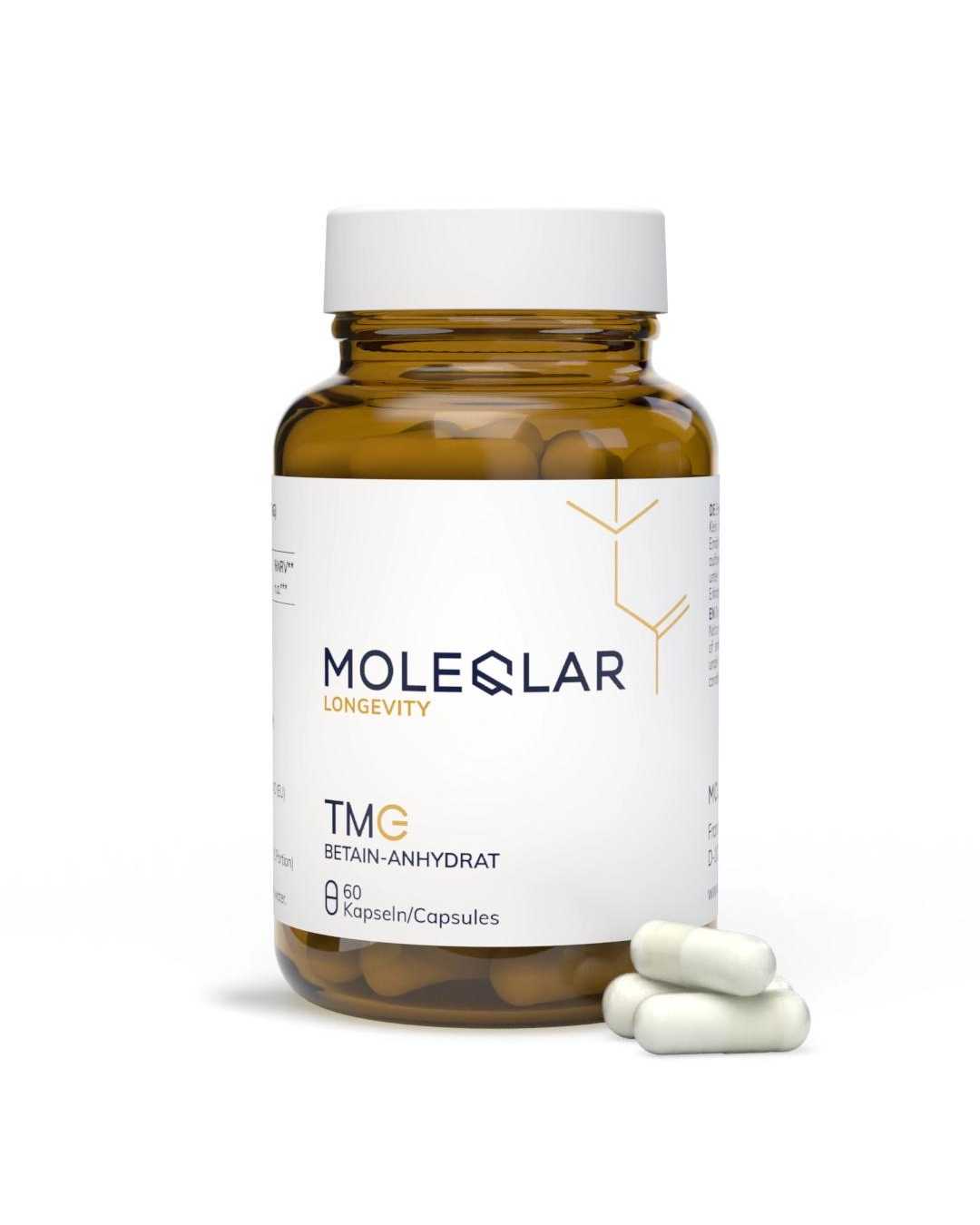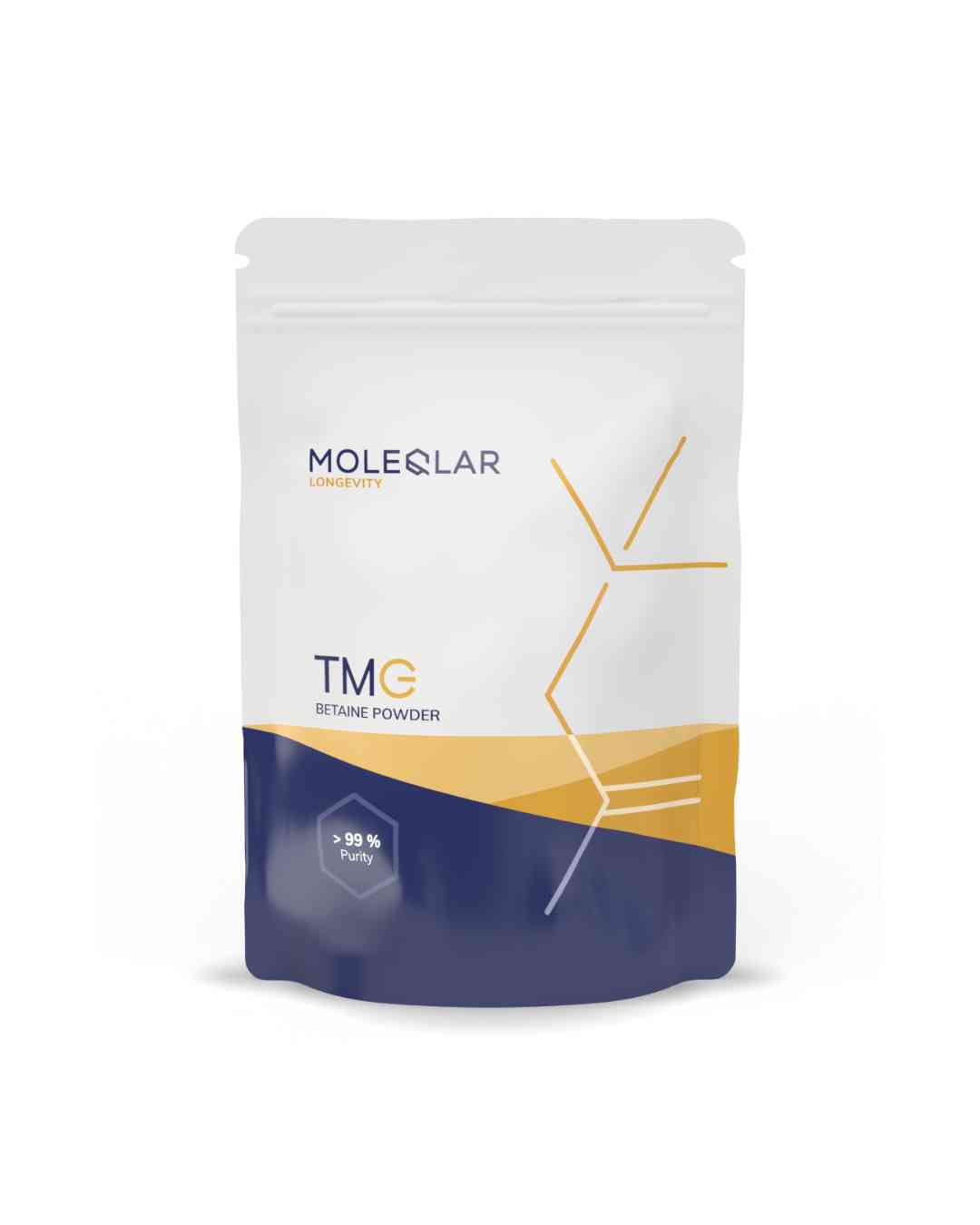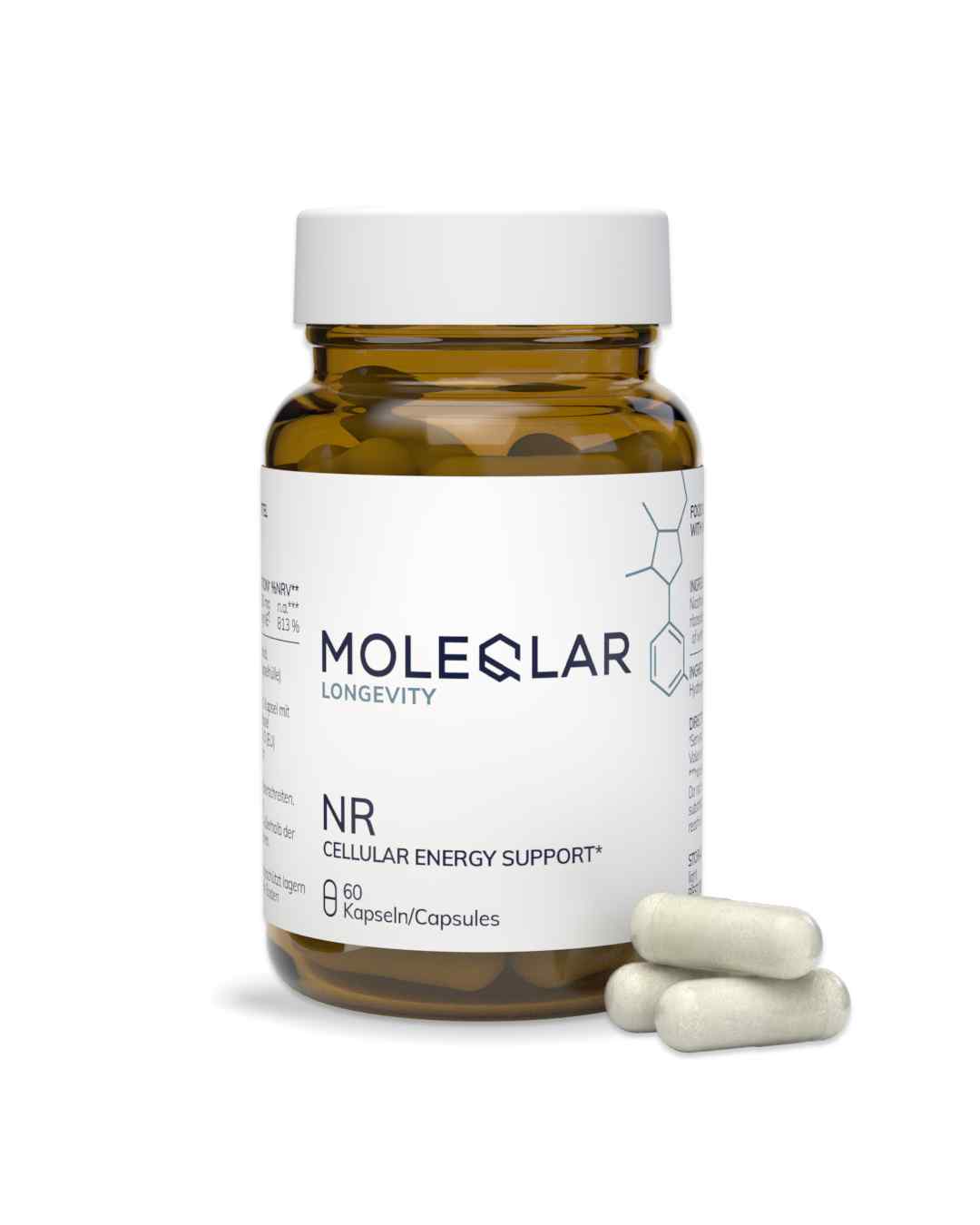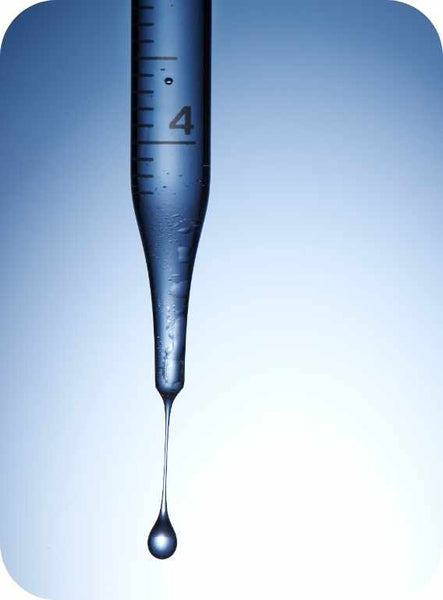


Betaine (TMG) powder
What makes our betaine powder special
- 120 grams crystalline, anhydrous Betaine (trimethylglycine/TMG) powder
- One sachet of betaine powder (120 grams) corresponds to a supply for 50 days (one serving = 2400 mg)
- Sustainable production from sugar beet (Beta vulgaris) in Austria
-
 Capsules
Capsules
-
 Powder
Powder
-
 Nicotinamide Riboside
Nicotinamide Riboside
You will receive
Part of our loyalty program: You will receive the specified amount as store credit after the purchase.
The MOLEQLAR "Clean Product & Label" philosophy ensures that every product reaches you in top quality. Every single batch undergoes a comprehensive and product-specific purity and residue analysis (heavy metals, microbiology, pesticides).
Shipping
Delivery within 1-4 working days in DE and AT. Orders placed after 12 noon will not be processed until the next working day.
You can find more information on the page for shipping information.
Quality assurance
At MOLEQLAR, we place the highest value on transparency with regard to the quality of our products. Every single product undergoes rigorous testing both by our manufacturer and by independent laboratories in Germany.
Click on this linkto go directly to the certificates.
Recommended intake
Gute Wahl! Dein Artikel wurde erfolgreich in den Warenkorb gelegt!

Betaine (TMG) powder
The perfect addition to your shopping cart:
Everything at a glance
Everything at a glance
What is betaine (TMG)
Function
Application
Ingredients
Certificates
Outstanding quality standards
Crystalline trimethylglycine (betaine) in powder form
Crystalline, anhydrous betaine powder with sustainable production from sugar beet (Beta vulgaris) in Austria.
Betaine powder from MOLEQLAR

Sugar beet as a natural source of betaine

The difference.
Quality, transparency and scientific responsibility are non-negotiable for us.


Independent laboratory analysis
Purity of the ingredients
Transparency for raw materials
Scientific background
Improved bioavailability



Betaine powder facts

Frequently asked questions (FAQs)
Wie sollte ich Betain Pulver richtig lagern?
Das Molekül Betain sollte am besten kühl und trocken gelagert werden. Auch aus direktem Sonnenlicht und von Hitze fern halten. Bitte außerhalb der Reichweite von Kindern aufbewahren. Dafür gibt es mehrere Möglichkeiten: Unsere recycelbaren und umweltfreundlichen Standbodenbeutel bieten einerseits einen ausreichenden Schutz vor hohen Temperaturen, Sonneneinstrahlung und Feuchtigkeit. Nach dem Öffnen der Schweißnaht sollte darauf geachtet werden, dass der Beutel stets mittels Druckverschluss versiegelt bleibt. Dadurch wird eine adäquate und sichere Lagerung von Betain ermöglicht.
Andererseits kannst du auch gerne auf unseren QJAR zurückgreifen. Der praktische Tiegel aus Opalglas ist nicht nur nachhaltig und umweltfreundlich, sondern bildet eine nützliche Alternative zu den klassischen Tüten. Fülle einfach das Pulver in die Dose und greife bei Bedarf bequem und einfach auf das Betain zurück. Der Tiegel fasst maximal 100 ml, also ungefähr 60 Gramm Betain-Pulver.
Wie kann ich Betain Pulver richtig abmessen?
Das Molekül Betain wird unter anderem in Pulverform angeboten. Entsprechend stellt sich häufig die Frage nach dem richtigen Abmessen. Folgende Optionen stehen dir zur Verfügung:
- Abmessung per Labor- oder Feinwaage: Wer Betain bis auf den Milligramm genau abmessen möchte, sollte sich bestenfalls eine Feinwaage zulegen. Verschiedene, relativ akkurate Modelle, sind bereits ab 10-15 Euro auf Amazon erhältlich.
- Abmessung mit dem QSCOOP: In deinem Beutel Betain befindet sich zusätzlich ein QSCOOP von MOLEQLAR. Dieser Messlöffel fasst insgesamt 1 ml – also je nach Lagerung und Dichte bedeutet das ungefähr 600 mg Betain-Pulver.
- Abmessung mit handelsüblichem Teelöffel: In einen klassischen glattgestrichenen Teelöffel passen zirka zwischen 3 und 5 ml. Das entspricht einer Menge von bis zu 3 Gramm Betain.
Wie sollte ich Betain Pulver richtig einnehmen?
Bei Betain (TMG) handelt sich um ein wasserlösliches Molekül. Es sollte daher mit viel Flüssigkeit, bestenfalls einem Glas Wasser, eingenommen werden. Ob du das Pulver getrennt oder zusammen mit einer Mahlzeit einnimmst, ist komplett dir überlassen. Aktuell gibt es keine Studien, die eine Methode als überlegen darstellen. Prinzipiell wird Betain (Trimethylglycin) äußerst gut im Darm aufgenommen und hat eine hohe Bioverfügbarkeit.
Wie lange ist mein Einkauf haltbar?
Prinzipiell kann man von einer Haltbarkeit von ungefähr zwei Jahren ausgehen. Diese Angabe dient lediglich als Richtwert, kann demnach variieren und ist ohne Gewähr. Das genaue Mindesthaltbarkeitsdatum deines Einkaufs findest du auf der Rückseite deines Betain-Beutels notiert.

















































































